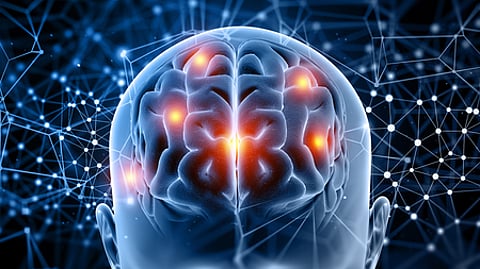

After Covid-19, active discussions about brain fog have been going on on social media. Though the condition is not medically diagnosed, the term describes a situation where we have a lack of concentration and persistent feeling of tiredness.
"Brain fog is a loosely defined set of symptoms referring to a feeling of having difficulty focusing and being inattentive, forgetting things which happened in the immediate past and feeling disconnected. It is usually reported in individuals recovering from infections, especially Covid-19, and in certain conditions like chronic fatigue syndrome and fibromyalgia," said Dr Gopikrishnan U, clinical assistant professor at Amrita Hospital, Kochi.
The condition may gradually evolve into a slight memory problem. "It starts with difficulty in finding the right word for things, objects, situations, etc. Then there will be difficulty in registering new information. The condition is also associated with daytime sleepiness, sluggishness, and slowness of thoughts. If somebody is asking you a question, you take a long time to figure it out and express it," said Dr Arun B Nair, professor of psychiatry at Government Medical College, Thiruvananthapuram, adding that the slowness of thoughts leads to slowness of verbal expression as well as motor tasks.
This would be a stage where you are incapable of doing day-to-day work, feeling burnt out, and feeling you cannot go any more forward in life.
"The term 'brain fog' became more popular during Covid because it was one of the presentations of long Covid. Also, many middle-aged and elderly people had the symptoms. Even young people had brain fog," added Dr Arun.
According to Dr Gopikrishnan, there are a lot of theories why Covid-19 causes brain fog. "The most widely held notion is that Covid-19 activates our immune system, which causes an inflammatory response in the brain, which in turn affects the normal functioning of the brain, leading to the symptoms of brain fog," he said.
Triggers
Post-Covid syndrome
Vitamin D deficiency
Sleep disturbance
Extreme stress
Nutritional deficiency caused by malnutrition or an inappropriate diet
Regular use of alcohol and other substances
"Students suffering from brain fog may not be able to focus on their studies and memorise whatever they studied, experience daytime sleepiness, tiredness, etc. Other symptoms associated with the condition are headache, irritability, feeling that you want to give up immediately, and memory impairment," he added.
Treatment
One should look for correctable factors if presented with symptoms of brain fog. "Low vitamin levels, low thyroid levels, sleep cycle disturbance, nutritional deficiencies, substance use, attention deficit, and other issues should be corrected. Also, staying physically active and getting sunlight for at least one hour a day can help," Dr Arun added.
Brain fog can be very disabling for people affected by it, affecting work productivity, overall mood and even interpersonal relations. "Lifestyle measures go a long way in reducing the symptoms of brain fog. Daily exercise, eating a balanced and healthy diet and ensuring a comfortable and uninterrupted sleep at night - all help in overcoming brain fog," emphasised Dr Unnikrishnan.
Ensure eight hours of continuous sleep at night
Practise sleep hygiene exercises and drink enough fluids and water
A balanced diet with more protein and fewer carbohydrates and fats
Avoid eating late at night, at least before 8pm, and fast for 12 hours at night